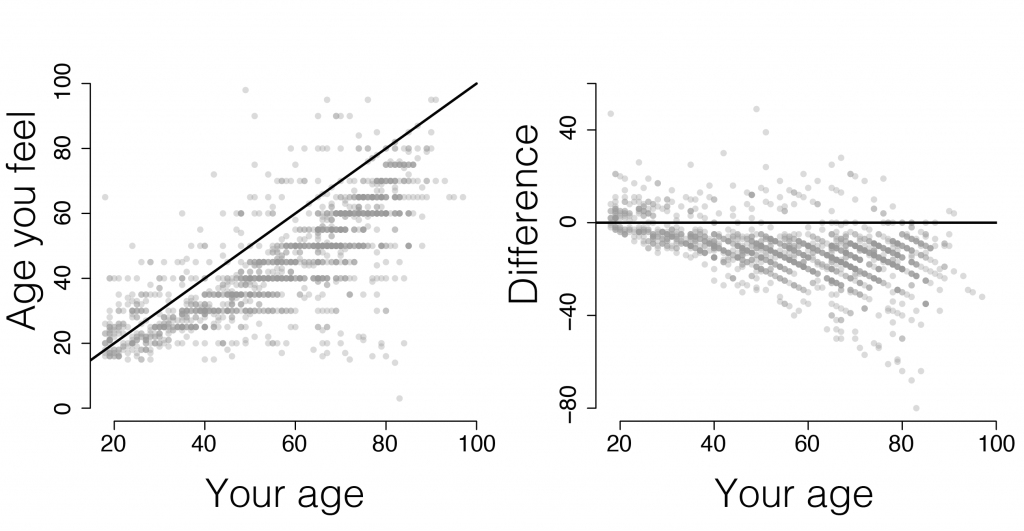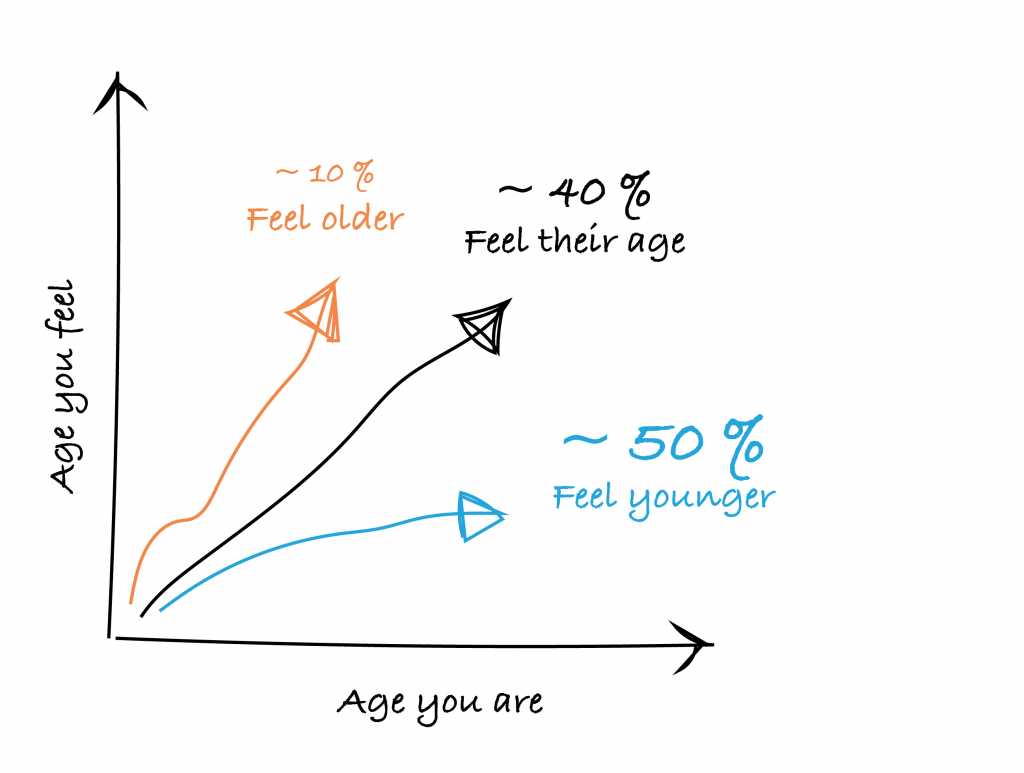Check the date:
Aging is traditionally measured in terms of months and years. Makes sense, considering that we all are checking our calendars and celebrating birthdays. Personally though, I always preferred the idea of measuring aging with ‘Chapters’, and that I might be somewhere around Chapter 7 now. In any case, measuring with chronological age years makes more sense if we want to compare between each other, but is chronological age the best way to do it?
‘Biological age’
A large movement is going on in biomedicine towards being able to measure someone’s ‘biological age’, rather than their ‘chronological age’ years. The hope is to catch a bit more information about what we are ultimately most interested in: health level, disease risk, and likeliness of death.
This emerging field has in fact been proving itself to be quite successful, with ‘biological age’ being able to reflect many aspects of general health. Of course, ‘biological age’ is complicated to assess, dependent on both genetics and lifestyle choices, and there is no true consensus in the field for how it should be measured. Nonetheless, here is a shortlist of what one study from Sweden found for how lifestyle choices correlate with your biological age on average. Biological age (or, ‘predicted age’, as the authors preferred to call it) was calculated with a model that takes into account the levels of specific proteins in blood, measured in about 1000 individuals with different ages and lifestyles.
The shortlist, factors correlated with biological age, and their effects:
- Exercising less than your peers: add 2.3 years
- Smoking: add 2.3 years
- Having a BMI over 40: add 6.3 years
- Eating fatty fish (more than 3 times per week, compared to just 1 time per week): subtract 4 years
- Drinking coffee (3-6 cups per day): subtract 5.6 years
Quite interesting, matches some of what we know about lifestyles and nutrition, and it’s a promising start for biological age indicators. In any case, take those years with a grain of salt, as the authors say, the proteins they measured aren’t necessarily related to aging, and the data comes from a cross-sectional (rather than longitudinal) dataset, so it’s hard to say how these lifestyle choices would affect any one individual over time.
But what happens if you just ask someone how old he or she feels?
So while the biomedical scientist (like me…) was busy measuring all kinds of molecular parameters, the social scientist thought, ‘lets just ask how old someone feels, maybe it could be informative too’. It turns out it’s pretty informative. And very interesting.
Below I used data from the 2009 survey from the PEW Research Center for Social and Demographic Trends in the US, and I plotted the age-someone-feels vs the actual-age for respondents (for only those who didn’t feel their age, about 60% of respondents). It seems that vast amounts of people feel younger than their age (seen in left panel) and the amount is proportional to how old they actually are (seen in right panel). What do other sources say? The institute of aging funded, MIDUS study (A national longitudinal study of health and wellbeing in the US) from the university of Wisconsin agrees. This seems to be a phenomenon, and guess what, people who feel that they are younger, end up being healthier too. Cause or consequence isn’t clear, but I image that if you feel younger than your age, it’s because you generally don’t have so many age-related diseases or complications in the first place, so it might be a self-fulfilling prophecy. In any case, here it is, from the MIDUS study report:
It seems that vast amounts of people feel younger than their age (seen in left panel) and the amount is proportional to how old they actually are (seen in right panel). What do other sources say? The institute of aging funded, MIDUS study (A national longitudinal study of health and wellbeing in the US) from the university of Wisconsin agrees. This seems to be a phenomenon, and guess what, people who feel that they are younger, end up being healthier too. Cause or consequence isn’t clear, but I image that if you feel younger than your age, it’s because you generally don’t have so many age-related diseases or complications in the first place, so it might be a self-fulfilling prophecy. In any case, here it is, from the MIDUS study report:
The shortlist, factors correlating with feeling younger:
- More sleep
- More good health
- Fewer disease risk factors (like smoking or having a high BMI)
- More social activity
- Greater purpose in life
The break down

So, where are you on the spectrum? Measuring your ‘biological age’ at home isn’t feasible yet, but figuring out how old you feel isn’t too difficult. If it turns out that you are older than you think you are, the good news (for you) is that it means you are probably healthier than others of your age.
And how has this all impacted me personally? …come to think of it, I feel a bit as if I might be on Chapter 6 actually.
